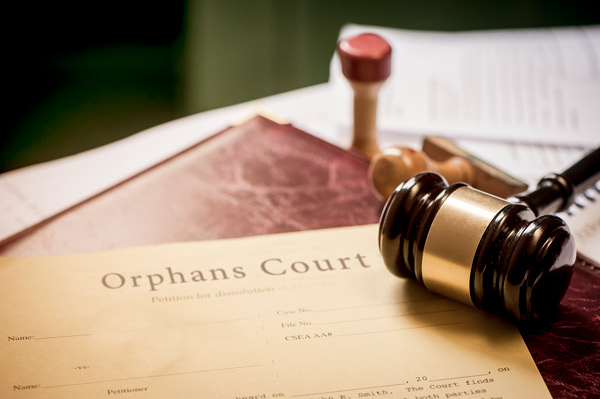
When most people hear the term “Orphans’ Court”, they assume it only involves cases about children. However, in Pennsylvania, Orphans’ Court plays a much broader role in handling legal matters related to estates, trusts, guardianships, and inheritance disputes. If you are dealing with the passing of a loved one, contesting a will, managing a trust, or navigating guardianship issues, you may find yourself involved in Orphans’ Court.
An estate planning lawyer is often the key professional who guides clients through this specialized court process. These cases are often complex, highly emotional, and involve significant legal and financial consequences. Understanding what Orphans’ Court is, when it comes into play, and how an experienced estate planning attorney can help is critical.
What Is Orphans’ Court?
Orphans’ Court is a division of the Court of Common Pleas in Pennsylvania that handles cases involving decedents’ estates, trusts, guardianships, adoptions, and other matters related to inheritance and property rights.
The court’s role is to ensure that the distribution of a deceased person’s assets follows the law, that minors and incapacitated adults are protected, and that executors, trustees, and guardians are fulfilling their duties properly.
Some of the most common matters handled in Orphans’ Court include:
- Probate and estate administration disputes – Determining how a deceased person’s assets are distributed.
- Will contests – Resolving challenges over the validity of a will.
- Trust disputes – Handling disagreements between beneficiaries and trustees.
- Guardianships – Appointing guardians for minors or incapacitated adults.
- Adoptions and name changes – Overseeing legal name changes and adoption procedures.
- Inheritance tax issues – Ensuring taxes are properly assessed and paid.
Because these cases often involve family disputes, high-value assets, and sensitive situations, Orphans’ Court proceedings can be complex and emotionally charged.
How You End Up in Orphans’ Court
Not every estate requires Orphans’ Court involvement. In many cases, if a will is valid and uncontested, the probate process can proceed smoothly through the Register of Wills without going to court.
However, you may find yourself in Orphans’ Court if:
1. Someone Contests the Will
If an heir or beneficiary believes a will is invalid — perhaps due to fraud, undue influence, or lack of mental capacity — they can file a challenge in Orphans’ Court. The judge will then decide whether the will stands or is set aside.
2. There Are Disputes Over Estate Administration
Executors and administrators have a fiduciary duty to manage the estate properly. If beneficiaries believe there has been mismanagement, fraud, or an uneven distribution of assets, Orphans’ Court steps in to resolve these disputes.
3. Guardianship Is Needed
If someone becomes incapacitated and can no longer manage their personal or financial affairs, Orphans’ Court appoints a guardian to make decisions on their behalf. Similarly, if a minor inherits property, the court may oversee the appointment of a guardian to manage those assets.
4. Trust Disputes Arise
Trustees are responsible for managing assets according to the terms of a trust. If beneficiaries believe the trustee has acted improperly, Orphans’ Court will handle the dispute and, in some cases, remove or replace the trustee.
5. The Court Must Approve a Complex Transaction
Sometimes, the sale of property, settlement of claims, or restructuring of assets requires Orphans’ Court approval, especially if minor beneficiaries or incapacitated individuals are involved.
How an Estate Planning Lawyer Helps in Orphans’ Court
Because Orphans’ Court handles sensitive and often high-stakes matters, having an experienced estate planning and probate attorney is essential. Here’s how they assist:
1. Guiding Families Through Probate and Estate Administration
An estate planning lawyer ensures that executors and administrators comply with Pennsylvania’s probate rules, file required documents, pay debts and taxes, and distribute assets properly.
2. Defending or Challenging a Will
If you are defending a will against a challenge or disputing its validity, an attorney collects evidence, prepares testimony, and represents you in hearings before the judge.
3. Handling Trust and Beneficiary Disputes
Your attorney ensures that trustees follow the terms of the trust and protects beneficiaries’ rights when disputes arise.
4. Petitioning for Guardianship
Estate planning lawyers handle petitions to appoint guardians for minors or incapacitated adults and ensure that the court approves a guardian who will act in the individual’s best interests.
5. Protecting Your Financial and Legal Interests
Whether you’re an executor, trustee, beneficiary, or potential heir, your attorney safeguards your rights and ensures compliance with Pennsylvania law at every step.
Why Having the Right Lawyer Matters
Orphans’ Court cases often involve complex estate laws, strict deadlines, and emotionally charged family conflicts. Without the guidance of an estate planning lawyer, you risk making costly mistakes or losing your legal rights.
A knowledgeable attorney can:
- Navigate complicated probate rules and court procedures
- Reduce the stress and uncertainty for families
- Minimize conflicts between beneficiaries
- Protect vulnerable individuals, including minors and incapacitated adults
- Help achieve faster and more favorable outcomes
Final Thoughts
Orphans’ Court exists to protect families, estates, and beneficiaries, but navigating it without professional help can be overwhelming. Whether you’re facing a will contest, trust dispute, guardianship matter, or complex estate administration, an estate planning lawyer provides the legal expertise and guidance needed to protect your interests.
If you or your family need help with an estate or Orphans’ Court matter, our experienced legal team can guide you through every step, from filing petitions to representing you in court.







